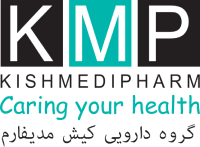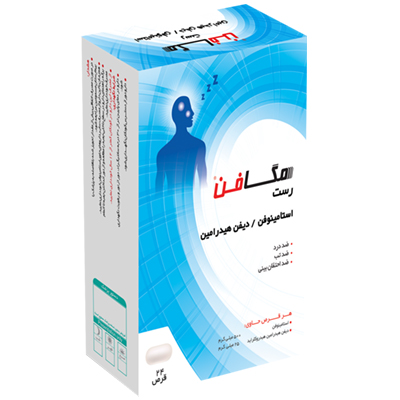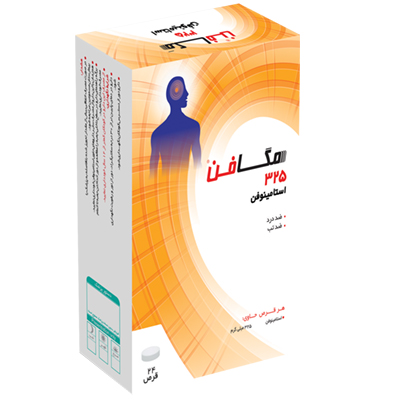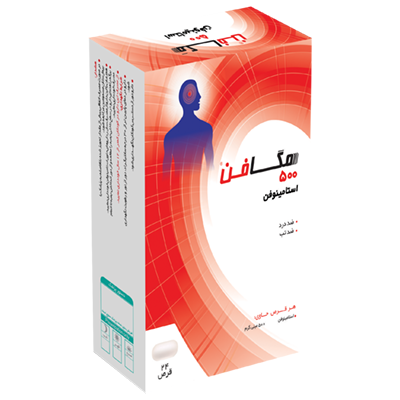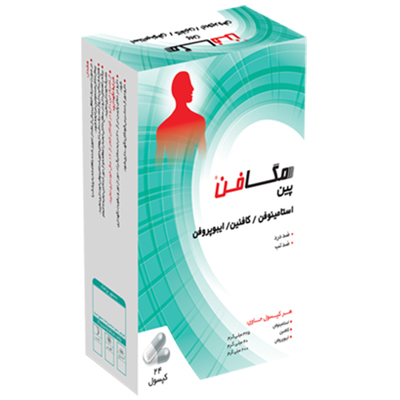Acne during pregnancy; a small crisis during a sensitive period. Before pregnancy, your skin may have been smooth, clear, and free of pimples. But as you enter this special period of life, you suddenly encounter something unfamiliar; red, inflamed, and sometimes painful pimples that appear in different areas of the face. This condition, known as pregnancy acne, can affect not only the appearance of the skin, but also the mother's self-confidence.
At first glance, this skin change may seem simple, but the truth is that pregnancy is a sensitive and stressful time for a woman's body and mind. The vast changes in hormone levels, increased skin oil secretion, decreased natural sweating, and the body's immune response can all be the trigger for the onset of acne during pregnancy. However, in addition to the physical and psychological concerns of this period, seeing pimples in the mirror every day can be even more challenging.
The bridge between worry and peace is awareness. In this article, we have addressed the topic of pregnancy acne with a scientific, precise, and specialized approach so that you can manage the appearance and health of your skin more calmly during this sensitive period. From examining the causes of occurrence and aggravating factors to introducing safe treatment and care methods, everything is explained in a comprehensive manner. If you or one of your loved ones is struggling with acne during pregnancy, this content can be a complete and valid answer to your questions and concerns.
Causes of acne during pregnancy
Before pregnancy, your skin may have been flawless, even, and clear. But suddenly, and without warning, stubborn, stubborn pimples can appear on your cheeks, chin, or even forehead. These changes can take a toll on your self-confidence, especially at a time when you need to relax more than ever. However, understanding what causes pregnancy acne can be the first step toward managing it. Unlike regular acne, this skin condition is often rooted in your body's internal structure and hormonal changes. Here are some of the most common causes:
Increased androgen levels: In the early months of pregnancy, your body begins to secrete higher levels of the hormone androgen. This hormone stimulates the skin's oil glands (sebaceous glands) and increases the production of sebum, or the skin's natural oil. The result? Clogged pores and inflammatory breakouts.
Less sweating and relative dryness of the skin: Changes in the body's sweating system mean that the skin is not able to eliminate toxins as well as before. Superficial dryness in some areas can lead to skin irritation and acne during pregnancy.
Immune system dysfunction: During pregnancy, the body's immune system is temporarily suppressed to prevent the fetus from being rejected as a foreign object by the mother's body. This can reduce the skin's natural defenses against bacteria and inflammation.
Pregnancy stress: Anxiety, mood swings, worries about childbirth, and family or work issues are all strong triggers for worsening acne.
Taking vitamins and supplements: Some supplements commonly used during pregnancy, especially those containing B12 or iodine, can cause or worsen acne.
Genetics: If there is a family history of pregnancy acne, you are more likely to develop it.
Using inappropriate skin care products: Many women continue to use their previous skin products during pregnancy, while some of these ingredients may be irritating or cause clogged pores during pregnancy.
In another article in full to all Causes of acneWe have discussed hormonal, nutritional, environmental, and lifestyle factors. For a more comprehensive and accurate understanding, we recommend that you also read this article about the cause of acne.
Ways to control and prevent acne during pregnancy
Acne during pregnancy is a common and sometimes unpleasant problem that affects many expectant mothers. The complex hormonal changes that occur during pregnancy increase sebum production and stimulate the skin's sebaceous glands, which predisposes to the occurrence of acne during pregnancy. This phenomenon not only gives the skin an unpleasant appearance, but can also lead to a decrease in self-confidence and psychological concerns. But the good news is that by knowing effective ways to control and prevent it, you can manage this challenge well and maintain healthy and glowing skin.
The first step in managing acne during pregnancy is to identify and avoid triggers. Hormones play a key role, but lifestyle and smart skincare also play a significant role. Applying simple but scientific methods, such as using gentle cleansers, keeping your skin moisturized, and following a balanced diet, can significantly reduce the severity of this condition. At the same time, choosing products without harmful chemicals and avoiding self-medication with acne medications is very important, because the health of the mother and fetus must be prioritized.
Establishing a regular skin care routine that is appropriate for your pregnancy is essential to preventing acne from getting worse during pregnancy. In addition, maintaining personal hygiene and avoiding picking at pimples can help prevent further inflammation and breakouts. Acne scars Also, stress management and adequate sleep are other important factors in reducing skin inflammation that should be considered.
Finally, if you are looking for more specialized solutions to control and prevent acne during pregnancy, consulting a dermatologist and following his or her instructions carefully is essential. Proper prevention and treatment not only ensures skin health but also brings peace of mind to the mother. By taking these measures, you can leave pregnancy with clearer skin and no skin concerns behind and welcome the sweet days of motherhood.
Is pregnancy acne dangerous?
Acne during pregnancy is a common and significant concern among many expectant mothers. This skin condition, which is often accompanied by a sudden and severe increase in pimples and skin inflammation, may raise concerns about the health of the mother and fetus. Can acne during pregnancy really be dangerous? Should this condition be ignored or should it be sought out for professional treatment? These questions have occupied the minds of many pregnant women.
The main problem arises when lack of knowledge and unnecessary worries cause stress and exacerbate symptoms. On the other hand, fear of taking medications and treatments due to concerns about the health of the fetus causes many mothers to postpone their treatment or use unscientific methods. This situation can lead to the exacerbation of acne during pregnancy and even leave permanent marks and scars that will be difficult to treat.
In fact, acne during pregnancy is generally a temporary skin condition that occurs due to the natural hormonal changes in the mother's body and usually does not pose a risk to the health of the fetus. But this does not mean that it is unimportant. Paying attention to proper hygiene, using safe treatment methods and consulting a dermatologist can help reduce complications and speed up recovery.
Treatment options must be chosen with care and sufficient knowledge to not only help resolve the problem but also ensure the health of the mother and fetus. In this regard, awareness and proper education play a key role so that mothers can spend their pregnancy with confidence and peace of mind. By understanding this issue carefully and following scientific advice, the adverse effects of pregnancy acne can be minimized and possible harm can be prevented.
Pregnancy acne In which months is it most severe?
The main problem is that hormonal changes during pregnancy are very complex and unpredictable. In some months, an increase in certain hormones, such as androgens, causes an increase in the secretion of oil from the sebaceous glands of the skin, which can lead to the appearance or exacerbation of acne during pregnancy. This makes many women feel that their skin condition has suddenly and uncontrollably worsened. Lack of awareness of this natural process leads to unnecessary worry and sometimes even the incorrect use of medications and skin products, which may endanger the health of the mother and the fetus.
The main solution in this regard is awareness and accurate prediction of sensitive times. By understanding the patterns of hormonal changes and the critical months of acne during pregnancy, targeted and scientific measures can be taken for control and prevention. Maintaining skin hygiene, eating healthy, and consulting a dermatologist are among the most important steps on this path.
- First trimester of pregnancy: sudden surge in hormones and onset of pregnancy acne
- Second trimester of pregnancy: relative stabilization and reduction of symptoms in some cases
- Third trimester of pregnancy: Acne returns or worsens due to increased hormones
- Postpartum period: severe hormonal fluctuations and the possibility of new acne
Is acne normal during pregnancy?
During pregnancy, a woman's body undergoes extensive physiological changes; changes that not only affect the body's internal systems, but also have a direct impact on the appearance and health of the skin. One of the most common concerns that many pregnant women face is pregnancy acne; a problem that can start in the early months of pregnancy and continue with varying degrees of severity throughout the pregnancy. But is it really normal to have pregnancy acne? Yes; pregnancy acne is completely normal due to hormonal fluctuations.
- It usually starts in the first or second month of pregnancy.
- It may continue until the end of pregnancy.
- In most cases, it gradually decreases after delivery.
- Awareness and control of the situation can prevent it from escalating.
- It is very important to consult a specialist to choose safe products.
- Increased levels of progesterone and androgen are the main causes of pregnancy acne.
- Using illegal drugs during pregnancy can be dangerous for the fetus.
- Healthy eating, stress management, and regular skin care play a vital role.
- There is no need to worry too much; this is a natural response of the body to pregnancy.
Ultimately, a scientific and accurate understanding of the internal processes during pregnancy is the first step in properly managing pregnancy acne and maintaining the mental and physical health of mothers.
Safe ways to treat pregnancy acne
During pregnancy, a woman’s body undergoes a wide range of changes, one of the most obvious being hormonal changes. These changes can have a significant impact on skin health. In many cases, these fluctuations lead to pregnancy acne, a condition that is often distressing for many women. However, here’s the biggest challenge: Most common acne medications are not safe during pregnancy and may pose risks to the fetus.
Some common ingredients, such as isotretinoin, oral or topical retinoids, and some antibiotics, are completely banned due to their effects on fetal development. These restrictions make expectant mothers hesitate between their own health and the health of their fetus. On the other hand, not treating pregnancy acne properly can lead to permanent scars or a decrease in self-confidence, especially during a period when a positive mood is essential for the health of both mother and fetus.
What's the solution? Fortunately, there are safe and effective ways to control and treat pregnancy acne that can improve the skin condition without putting the fetus at risk. These methods include lifestyle changes, the use of safe topical products, natural remedies, and in some cases, medications prescribed by a specialist. The key to success on this path is to consult a doctor and choose methods that are designed based on scientific evidence and medical standards. Types of safe methods for treating pregnancy acne:
- Drink enough water and maintain your body's hydration balance.
- Avoid manipulating acne and using strong chemical peels.
- Gently wash the skin with sulfate-free, fragrance-free detergents.
- Use topical products containing low-concentration benzoyl peroxide with a doctor's advice.
- Regular consultation with a dermatologist to monitor the condition and change the treatment approach if needed.
- Consult your doctor to adjust your diet to include anti-inflammatory ingredients such as omega-3, zinc, and vitamins.
- Using gentle homemade masks such as clay or natural honey (if you are not allergic).
- Observe sleep hygiene, change pillowcases regularly, and avoid prolonged skin contact with mobile phones or hands.
- Topical use of azelaic acid, which is anti-inflammatory and antibacterial and is considered safe during pregnancy.
The selection of each of these methods should be made taking into account the individual's skin characteristics and the severity of pregnancy acne to achieve safe, effective, and soothing treatment.
Natural masks for pregnancy acne
During pregnancy, a woman's skin undergoes dramatic changes; hormonal fluctuations, increased oiliness, and overactive sebaceous glands all contribute to the development of pregnancy acne. The breakouts that develop during this time are often resistant to conventional treatments, and the safety restrictions of pregnancy make many effective medications unsuitable. But that doesn't mean there aren't solutions. In fact, nature has always been a safe haven for gentle, safe, and effective treatments.
Acne during pregnancy is usually caused by increased levels of the hormone androgen, which increases sebum production and clogs pores. The result is inflamed, blackhead-ridden, and even pus-filled pimples on the face and sometimes the body. The biggest challenge is that during this time, many of the chemicals commonly found in acne products, such as retinoids, high-concentration salicylic acid, and certain antibiotics, are prohibited or should be used with extreme caution.
In these situations, using natural masks that are made from safe ingredients, without preservatives and free of harmful chemical compounds can be an ideal solution to reduce skin inflammation and control pregnancy acne. These masks, while soothing the skin, help regulate sebum secretion, cleanse pores, reduce bacteria and inflammation; without harming the mother or fetus. Below, we introduce some of the best natural masks suitable for pregnancy acne:
Honey and Cinnamon Mask: An antibacterial, anti-inflammatory, and antioxidant combination. Raw honey softens and disinfects the skin, and cinnamon, with its antimicrobial properties, prevents the proliferation of acne-causing bacteria.
Green Clay Mask: Suitable for oily and acne-prone skin. Green clay reduces inflammation by absorbing excess oil and deeply cleansing pores.
Aloe Vera and Cucumber Mask: Cooling, soothing, and naturally moisturizing, this combination helps reduce redness, inflammation, and dryness caused by acne and repairs skin texture.
Oatmeal and Yogurt Mask: A gentle exfoliant that balances the skin's pH and is great for reducing inflammation. The lactic acid in yogurt removes dead skin cells and the oatmeal soothes the skin.
Turmeric and Yogurt or Milk Mask: Turmeric is a powerful anti-inflammatory that is used in traditional Indian medicine to treat acne. When combined with yogurt, it is both healing and skin lightening.
Rosewater and Sea Salt Clay Mask: An old but very effective combination for reducing hormonal acne. Rosewater clarifies the skin and sea salt clay absorbs excess oil and helps cleanse pores.
Before using any mask, it is necessary to test a small amount of it on a small area of the skin to ensure that there is no sensitivity. Also, if you have specific skin conditions or a history of allergies, be sure to consult a doctor. For pregnancy, when the health of the mother and fetus is a priority, returning to nature is one of the smartest choices to reduce pregnancy acne.
The role of skin serums for acne during pregnancy
During pregnancy, the beauty and health of the skin may be affected by hormonal fluctuations. Many women face various skin problems, including acne during pregnancy, at this stage. Unlike regular acne, this type of acne is often more severe and resistant, because its main cause is severe hormonal changes, especially increased androgens. On the other hand, restrictions on the use of many topical and systemic medications for Acne treatment During this time, the challenge of treatment doubles.
This is exactly where skin serums come in; lightweight products with good, effective formulas that can play an important role in reducing acne symptoms during pregnancy without being heavy or irritating to the skin. Unlike greasy creams and traditional pharmaceutical products, serums, due to their light texture and high penetration power, deliver their active ingredients to the deeper layers of the skin and are more effective faster. Most importantly, some serums are designed with safe formulations and free of harmful ingredients for the mother and fetus, making them completely safe to use during pregnancy.
But the main question is: Which serums are suitable for acne during pregnancy? What ingredients should be present in these serums and which ingredients should be avoided? Below, we will examine the role of skin serums suitable for pregnancy. Effective and safe serums for pregnancy acne:
- Serums containing niacinamide (Vitamin B3): Has anti-inflammatory and sebum-regulating properties. Safe to use during pregnancy and useful for reducing redness and inflamed pimples.
- Serums containing hyaluronic acid: A powerful hydrator that helps balance skin moisture and accelerates the repair process without irritating or adding oil.
- Serums with Tea Tree Extract: A natural and effective antibacterial for controlling acne of bacterial origin. In low percentages and diluted form, it is safe for pregnancy.
- Aloe vera and chamomile-based serums: Soothing, anti-redness, and soothing for sensitive and inflamed skin. The best choice for irritated skin during pregnancy.
- Fragrance-free and paraben-free serums: These types of serums minimize the risk of irritation and sensitivity and are completely safe for daily use by pregnant women.
- Serums containing zinc: An anti-acne mineral that helps regulate sebum secretion and reduce inflammation, without harming the fetus.
Proper use of serums, especially at night and after thoroughly cleansing the skin, can have a significant impact on controlling acne during pregnancy. By choosing safe products, you can not only combat annoying pimples, but also maintain fresh and glowing skin during one of the most important stages of life.
Acne during pregnancy and anti-acne shampoos
As mentioned, during pregnancy, a woman's body undergoes extensive changes; from severe hormonal fluctuations to increased skin oil levels. One of the most challenging complications of this period is acne during pregnancy. Acne, which is usually not limited to the face, contrary to popular belief, can also appear on the shoulders, chest, back, and even the scalp. Meanwhile, the scalp, which is often ignored, can be a source of inflammatory and painful acne. This is where choosing a suitable shampoo with anti-acne properties becomes doubly important.
Many common shampoos contain chemicals, comedogenic (pore-clogging) ingredients, or strong surfactants that can aggravate skin inflammation and trigger acne during pregnancy in certain pregnancy conditions. Especially when the scalp becomes excessively oily or under pressure (such as prolonged use of a scarf or hat), it becomes prone to developing subcutaneous or purulent pimples. In such situations, using shampoos that are gentle cleansers, sebum regulators, and antibacterial at the same time is a smart and safe solution. Here are the key features of a good shampoo for controlling acne during pregnancy:
Shampoos containing low doses of salicylic acid: Salicylic acid, with its mild exfoliating properties, helps to cleanse the scalp pores and control oil. However, higher doses are not recommended for pregnancy, so they should be used with caution and under the supervision of a doctor.
Sulfate and paraben-free formulas: Sulfates can overdry the skin and cause irritation. Sulfate-free shampoos are a safer choice for pregnant women.
Shampoos with Tea Tree Oil: This oil is a natural antibacterial that helps reduce inflammation and the bacteria that cause pregnancy acne. A good choice for acne-prone scalps.
Products with zinc pyrithione or zinc PCA: These ingredients not only help reduce dandruff and inflammation, but also play a role in regulating sebum and preventing the growth of acne-causing bacteria.
Shampoos with aloe vera or chamomile extract: These are the best options for relieving inflammation and calming sensitive scalp. These extracts have anti-inflammatory and moisturizing properties.
pH-balanced formulas (5.5 to 6.5): Shampoos with the right pH help maintain the skin's protective barrier and prevent irritation or excessive dryness.
By choosing the right shampoo, you can prevent or reduce the severity of many cases of acne during pregnancy. Taking care of your scalp is just as important as taking care of your face or body. Pregnancy is not the end of beauty; it is the beginning of a new beginning for your natural glow.Top of FormBottom of Form
Herbal oils for acne during pregnancy
Vegetable oils, with their mild structure and natural ingredients, can be a safe and effective alternative for controlling acne during pregnancy. Some of these oils have antibacterial, anti-inflammatory, and sebum-regulating properties, without disrupting the body's hormonal balance or posing a risk to the fetus. Of course, choosing the right oil, how to use it, and ensuring that it is pure and organic play a decisive role in the final result. Below, we will introduce some useful vegetable oils for treating and improving pregnancy acne:
- Tea Tree Oil: This oil is one of the most powerful natural antiseptics that helps reduce inflammation and dry out acne with its antibacterial and antifungal properties. It should be used in very small doses and topically during pregnancy.
- Jojoba Oil: The molecular structure of this oil is very similar to the skin's natural sebum, so it helps regulate oil production without clogging pores. Its anti-inflammatory properties are also helpful in reducing redness and skin irritation.
- Rosehip Oil: Rich in vitamins A and C, it helps to regenerate skin, heal acne scars, reduce pregnancy acne, and reduce inflammation. It is lightweight and non-comedogenic, making it great for sensitive skin.
- Grapeseed Oil: Rich in antioxidants and linoleic acid, this oil helps reduce acne and heal skin while moisturizing it. It is a good choice for daily use due to its fast absorption and light texture.
- Chamomile oil: With its soothing and anti-inflammatory properties, it is an ideal option for skin that has experienced sensitivity, redness, and inflammatory acne during pregnancy. Its pleasant scent is also helpful in reducing stress.
- Aloe Vera Oil: A lightweight, anti-inflammatory, and antibacterial blend that helps soothe and moisturize skin while reducing acne. Great for use directly or mixed into homemade masks.
By harnessing the healing power of nature and making smart choices, you can combat acne during pregnancy without worrying about side effects. Essential oils are a bridge between health, beauty, and relaxation during this sensitive time.
What causes pregnancy acne to worsen?
Why does pregnancy acne worsen in some women? The answer lies in a combination of factors that are both physiological and environmental. Understanding these reasons helps us to prevent or control it with scientific and informed insight. We will list the main reasons why acne worsens during pregnancy:
- A dramatic increase in androgens: This male hormone naturally increases during pregnancy, stimulating the sebaceous glands to produce more oil on the skin. The result? clogged pores and the beginning of the pregnancy acne cycle.
- Decreased ability of the skin to naturally exfoliate: During pregnancy, the process of shedding dead skin cells slows down. This accumulation of dead cells along with oil leads to inflammation and acne.
- Pregnancy stress and anxiety: Psychological changes during this period can increase the level of the hormone cortisol, a factor that indirectly contributes to the occurrence or exacerbation of acne during pregnancy.
- Taking certain vitamins or supplements: Some pregnancy supplements may contain ingredients that can cause skin reactions, especially supplements that are high in biotin or iodine.
- High-fat and unbalanced diet: Improper nutrition, high consumption of simple sugars and saturated fats, may increase inflammation in the body and prepare the conditions for acne.
- Using inappropriate care products: Many creams or cleansers that were safe before pregnancy may irritate or clog pores during this time.
Understanding these underlying factors not only helps prevent acne during pregnancy, but also makes the treatment path more targeted and effective. By choosing the right products, living a balanced lifestyle, and managing stress, you can reduce the severity of this skin problem and give your skin a chance to regenerate and breathe again.
6 prohibited medications for acne during pregnancy
Acne during pregnancy may seem worrisome, but treating it requires patience, care, and the use of completely safe methods. Many common medications, such as retinoids or some antibiotics, are not recommended at all due to their direct impact on the development of the fetus. The following are prohibited medications for acne during pregnancy:
- Oral isotretinoin (Roaccutane): One of the most dangerous medications for pregnant women. Its use during pregnancy can cause severe birth defects, brain and heart problems in the fetus.
- Topical retinoids (such as tretinoin and adapalene): Although they are topical, their use is prohibited during pregnancy due to the possibility of skin absorption and teratogenic effects.
- Tetracyclines (such as doxycycline and minocycline): This group of antibiotics can disrupt the development of the fetus's teeth and bones.
- Hormone therapies (such as spironolactone and flutamide): These drugs, with their widespread hormonal changes, can have detrimental effects on the sexual development of the fetus, especially in male fetuses.
- High-dose salicylic acid (topical or oral): Although it may be considered safe in low concentrations, high doses can cause salicylate toxicity in the fetus.
- High-concentration benzoyl peroxide: High concentrations of this compound can irritate the skin and increase systemic absorption; use should be cautious and under medical supervision.
Acnemis Gel is one of the effective pharmaceutical products in the treatment of inflammatory and comedonic acne, which is especially prescribed for people suffering from acne on the face, chest and back. This product is produced by Kish Medipharm Pharmaceutical Company and contains a combination of two active ingredients: clindamycin phosphate (a topical antibiotic) and tretinoin (a vitamin A derivative). Together, these two compounds help reduce inflammation and clear pores by inhibiting the growth of Propionibacterium acnes bacteria and regulating skin keratinization.
Clindamycin, with its antibacterial properties, helps reduce inflammation and control the growth of acne-causing bacteria. On the other hand, tretinoin, by boosting the cell renewal cycle, clears the skin of dead cells and prevents clogged pores. This dual combination, Acnemis gel has made it an effective option for treating active and superficial acne scars.
However, one very important point should be noted: Acnemis gel is absolutely not recommended for use during pregnancy and even during pregnancy attempts. This is because of the presence of the compound tretinoin, which has teratogenic properties and its use may lead to congenital abnormalities. Even topical absorption of this substance can in some cases enter the bloodstream and have unwanted effects on the fetus.
Acne treatment during pregnancy should be done with scientific rigor and a conservative approach to both preserve the mother's health and ensure peace of mind regarding the fetus's health. Bottom of Form
Does pregnancy acne go away after giving birth?
In many cases, acne gradually subsides as hormone levels adjust after delivery. A healthy diet, adequate sleep, and stress reduction can help your skin return to normal. If acne persists after pregnancy, stronger treatments such as retinoids can be prescribed by your doctor. Medications should also be chosen with caution during breastfeeding.
The answer to the question, "Does pregnancy acne go away after giving birth?" is in most cases positive; but with conscious and scientific management, this path can be shorter and less painful.
Conclusion
During pregnancy, pregnancy acne is a common and sensitive skin problem that affects many mothers. This natural phenomenon is caused by hormonal changes, increased sebum production, and various skin reactions that can affect the quality of life and self-confidence of mothers. However, understanding the exact causes of acne during pregnancy and choosing safe control and prevention strategies plays a significant role in reducing its complications.
There are several treatment methods for controlling acne during pregnancy, including natural care, herbal masks, properly formulated skin serums, and the use of anti-acne shampoos. The important point is that due to the sensitivity of pregnancy, the use of some medications is prohibited and should always be done in consultation with a specialist. For this reason, choosing safe treatments and effective prevention is the main priority.
In addition to topical treatments, lifestyle changes and skin hygiene are also key factors in controlling pregnancy acne. Regular skin care, avoiding irritants, and eating a healthy diet can help reduce the incidence and severity of acne.
Finally, it should be noted that pregnancy acne usually improves after delivery, but if the scars become severe or persist, it is necessary to see a specialist and receive specialized treatment. This article has provided you with comprehensive and useful information so that you can spend this sensitive period with more awareness and the correct choice of treatment and preventive methods, in a healthier and more relaxed way.
The information in this article does not replace the advice and specialized treatment of a doctor, and in the event of any skin problems, consultation with a dermatologist or gynecologist is recommended.
